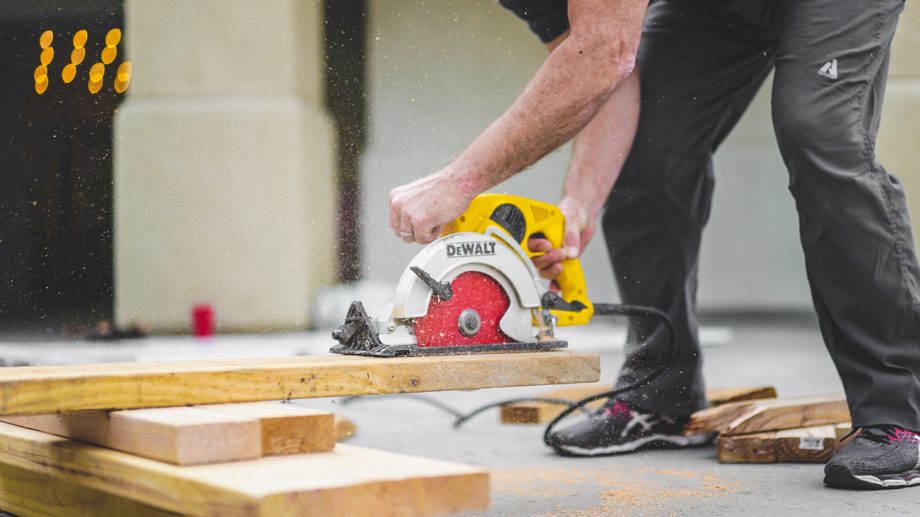
While the world is in lockdown because of the COVID-19 pandemic, many people confined to their homes have started doing DIY in their newly found spare time. Whether it’s as simple as mowing the lawn, or undertaking bigger household or vehicle DIY projects, you could be exposed to potentially damaging noise levels if your ears are unprotected when using certain tools.
Temporary and permanent hearing loss, as well as a ringing or buzzing sound in the ears called tinnitus can be a result of prolonged, unprotected exposure to loud noise. Around one in ten of the UK population suffer from tinnitus, and part of the issue is that people aren’t aware of what can cause hearing damage, and how they can prevent it. Noisy DIY and construction tools are among key contributors to tinnitus cases.
The three main parts of the ear – the ‘outer’ ear, the ‘middle’ ear and the ‘inner’ ear – enable us to hear a wide range of pitch of sound and a very wide range of ‘loudness’ of sound. We’re able to register small sounds, like the crunch of leaves under foot, to loud sounds like power tools and engines from fast cars, motorcycles and planes. As sounds get louder, there is a risk of them damaging our ears, with the risk of damage associated with the ‘dosage’ of sound our ears receive.
So, how loud is too loud?
Permanent hearing damage can occur at sound levels over 80dB and hearing protection needs to be used. Here are some examples of the tools you may be using in your DIY projects, the noise levels they emit, and the maximum unprotected exposure times before hearing damage can occur:
- Milling machine: 85dB / 8 hours
- Lawnmower: 94dB / 1 hour
- Handheld drill: 100db / 15 minutes
- Jackhammer: 109dB / 112 seconds
- Circular saw: 110dB / under 60 seconds
Identifying loud noise
When using power tools for DIY projects, being able to identify if a noise is too loud without protection is important to maintain the health of your hearing. Although there is no definitive way to identify whether a noise is too loud without specific measuring equipment, there are a few 'rules of thumb' to guide you:
- Firstly, use common sense. If a sound is uncomfortably or painfully loud, it is likely that that the noise is at a level where it could cause damage
- If you find a ringing or buzzing in your ears (tinnitus) after exposing yourself to noise you are probably risking your hearing, so avoid further exposure without hearing protection.
- If you have to shout to be heard by somebody in your household around a metre away, the noise is loud enough to be potentially damaging.
- If you find your hearing is dulled after exposing yourself to noise, then your hearing has been damaged. This may be temporary, but if you repeatedly expose yourself to these situations, the damage may become permanent.
Preventing exposure to loud noise
It’s worth remembering that hearing loss and tinnitus due to loud noise exposure is completely avoidable if you take the right precautions. Most DIY projects require the use of specific power tools, but being prepared and being able to limit your exposure to loud noise can stop you damaging your hearing.
- Use hearing protection: Hearing protectors decrease harmful noise entering your ear. Ensure they are worn at all times during exposure to loud noise. Cotton wool doesn’t help!
- Take regular breaks: If you’re using power tools for lengthy periods of time, make sure you take regular breaks
- Keep tools in good condition: Before using power tools, make sure they are in good condition. For example, if you are using blunt drill bits, blades or grinding disks, the longer you will be exposed to potentially damaging noise. If you can, switch to quieter equipment.
Did you know…
Auritech hearing protectors have a unique design for optimum safety. Our customisable moulded ear plugs and universal fit ear plugs have a patented ceramic filter that is frequency-selective. They protect your hearing from harmful noise whilst allowing you to communicate normally and hear relevant background sounds.
Find out more about using Auritech Work to protect your hearing whilst doing DIY here